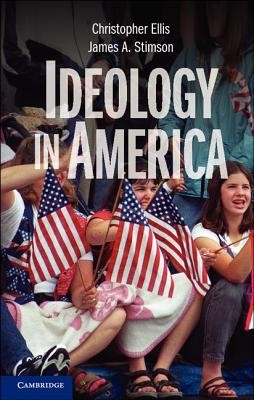
- We will send in 10–14 business days.
- Author: Christopher Ellis
- Publisher: Cambridge University Press
- ISBN-10: 1107687411
- ISBN-13: 9781107687417
- Format: 15.2 x 22.6 x 1.3 cm, softcover
- Language: English
- SAVE -10% with code: EXTRA
Ideology in America. Christopher Ellis, James A. Stimson (e-book) (used book) | bookbook.eu
Reviews
Description
Public opinion in the United States contains a paradox. The American public is symbolically conservative: it cherishes the symbols of conservatism and is more likely to identify as conservative than as liberal. Yet at the same time, it is operationally liberal, wanting government to do and spend more to solve a variety of social problems. This book focuses on understanding this contradiction. It argues that both facets of public opinion are real and lasting, not artifacts of the survey context or isolated to particular points in time. By exploring the ideological attitudes of the American public as a whole, and the seemingly conflicted choices of individual citizens, it explains the foundations of this paradox. The keys to understanding this large-scale contradiction, and to thinking about its consequences, are found in Americans' attitudes with respect to religion and culture and in the frames in which elite actors describe policy issues.
EXTRA 10 % discount with code: EXTRA
The promotion ends in 20d.19:51:48
The discount code is valid when purchasing from 10 €. Discounts do not stack.
- Author: Christopher Ellis
- Publisher: Cambridge University Press
- ISBN-10: 1107687411
- ISBN-13: 9781107687417
- Format: 15.2 x 22.6 x 1.3 cm, softcover
- Language: English English
Public opinion in the United States contains a paradox. The American public is symbolically conservative: it cherishes the symbols of conservatism and is more likely to identify as conservative than as liberal. Yet at the same time, it is operationally liberal, wanting government to do and spend more to solve a variety of social problems. This book focuses on understanding this contradiction. It argues that both facets of public opinion are real and lasting, not artifacts of the survey context or isolated to particular points in time. By exploring the ideological attitudes of the American public as a whole, and the seemingly conflicted choices of individual citizens, it explains the foundations of this paradox. The keys to understanding this large-scale contradiction, and to thinking about its consequences, are found in Americans' attitudes with respect to religion and culture and in the frames in which elite actors describe policy issues.


Reviews